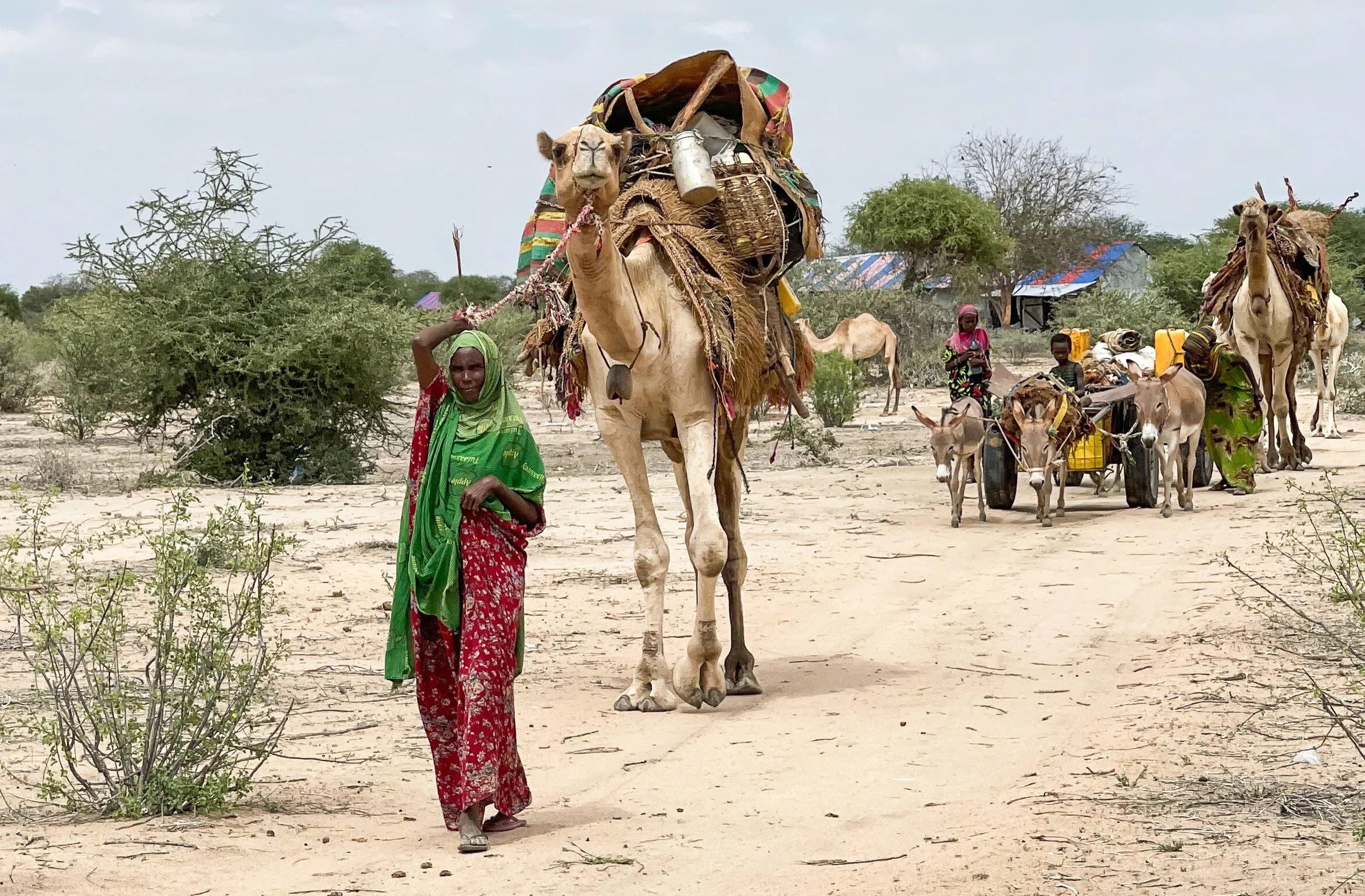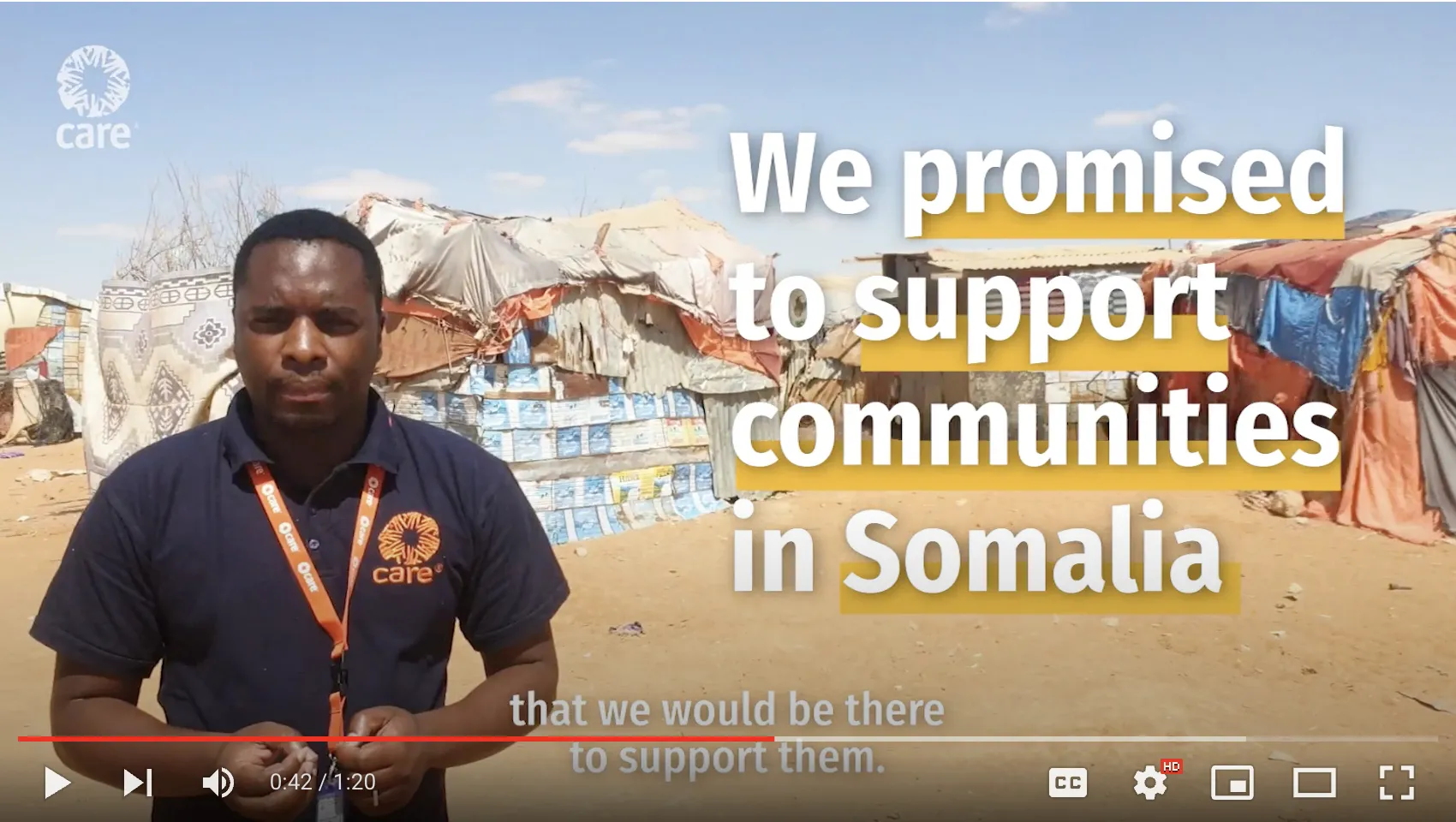Mogadishu 30 January 2023: Somalia remains on the cusp of famine as a sixth failed rain season is projected.
Another below-average rainfall season will spell a catastrophe for communities that are already battling to cope with the current drought situation. Millions of families are already reeling from the effects of five consecutive failed rainfall seasons. Approximately 2.2 million more Somalis will likely experience high levels of acute food insecurity between January and March 2023 as compared to the same period in 2022.
Drought in Somalia has resulted in the loss of millions of livestock and staple food crops which form the livelihood backbone of most families. More than a million people have been displaced in search of food, water, and pasture, further straining available resources in a country that already has one of the highest numbers of Internally Displaced People in the world. Thousands have fled the country to neighboring countries such as Kenya.
Halimo Abdi, a 38-year-old mother was a pastoralist who relied on her livestock to support her family. Life was good as she had access to milk and water and provided at least three meals a day for her family and children. This has all changed due to the drought, her 11-member family was displaced and forced to settle in a camp for internally displaced people.
“We were forced to leave our home after the current drought killed all our animals. We lost everything that we had. We came to this camp in Kismayo three months ago with the hope of getting food and we can only depend on handouts. Our children are sickly as they are not getting enough to eat. On top of that, we do not have money to buy medication for them. We have faced so many challenges, and only God can help us,” Halimo said.
Ummy Dubow, CARE Somalia Deputy Country Director, Programs, “The resources we have are being fast outpaced by the needs on the ground. During the last six months of 2022, we reached more than 600,000 people with emergency support. Currently, we anticipate that the number of people in need will rise sharply as we face another sixth failed rainfall season. Women and girls continue to face the hardest brunt of this crisis. Our call centers are inundated by people in desperation and seeking help to support their families amid the biting drought. Without more resources, we may witness another famine in Somalia that could lead to more lives being lost. We are calling upon donors and the international community not to wait for a famine to be declared but to spring into action immediately.”
CARE International Staff are witnessing an increase in the number of emaciated women and children visiting the health centers we support. All the 65 health facilities and 86 mobile sites supported by CARE across the country are reporting an increase in emaciated children and pregnant and lactating mothers, this is unacceptable.”
CARE is responding to the worsening humanitarian situation through assistance with water, sanitation, and hygiene (WASH), health and nutrition, education in emergencies for drought displaced children, protection and food and livelihoods support in the form of cash families can choose how best to prioritize their household finances to meet their basic needs.
For media enquiries, contact:
- Anisa Husain, Press Officer: anisa.husain@care.org


